|
As most of us settled in to enjoy the holiday season at home with family and friends, our representatives in Washington D.C. raced to finish some last-minute business. Major legislation was passed, the January 6th committee issued its final report, Donald Trump’s tax returns were released, and the 117th Congress faded into the history books, leaving some important business undone. Before turning the page on 2022, my final blog of the year is about some of my thoughts on these issues that emanated from D.C. while the rest of the country was busy with holiday preparations. Donald Trump’s Income Taxes: Today (12/30/2022) House Democrats released six years of former President Donald Trump’s income tax returns. This is the type of thing that excites the politicians in Washington D.C., but for most of Americans it is a yawner. People just don’t care about Trump’s returns. We already know that Trump pays very little in personal income taxes because he uses massive real estate losses and write-offs from his various companies to offset any income. The House has the right to release Trump’s tax returns, but it didn’t have to. It was purely a political move to damage him. What is important was brought to light in a report issued by the House Ways and Means Committee ten days ago. The I.R.S. had failed to audit Trump’s tax returns during the first two years of his presidency, even though it is mandated by I.R.S. policy. It wasn’t until after the congressional committee’s inquiry into the matter as part of its oversight role, did the I.R.S. initiate the audit of President Trump’s tax returns. I don’t think that the Trump White House pressured the I.R.S. into turning a blind eye to Trump’s tax returns. I simply think that the I.R.S. was outgunned by Trump’s army of tax attorneys and accountants, and overwhelmed by Trump’s hundreds of tax entities and tangle of businesses. The I.R.S. just didn’t have the manpower and expertise to do a thorough audit of such a complex tax situation. This is why the Democrats included $80 billion for the I.R.S. in the Inflation Reduction Act , passed earlier this year. House Republicans have threatened to withhold this money from the I.R.S. when they take over the House majority in January. This would be a huge mistake and hypocritical on their part. If the Republicans claim to be the party of fiscal responsibility and low taxes, then they should give the I.R.S. the tools and resources required to collect the taxes that are legally owed. January 6th Committee Report: Last week the House committee investigating the deadly attack on the U.S. Capitol released its final report after 18 months of investigations. The report was issued just weeks before the new Republican controlled House of Representatives will certainly shut down the committee and its investigation. Most people will never read the 800 plus page report, but it is important, if for no other reason than to create the historical record of the most significant act to overthrow the government of this country since the civil war. Congress will probably shelve the report and move on. Now it is up to the Department of Justice (DOJ) to pursue some of the criminal charges that the report recommends be brought against former President Trump. These include inciting or assisting an insurrection; conspiring to defraud the United States; obstructing an official proceeding; and conspiring to make a false statement. Do I think that Donald Trump is guilty of some or all of these charges? Yes! Do I think that the DOJ will indict Trump of any of these charges? Probably not, because they will be difficult to prove in a court of law. According to the committee’s report “The central cause of Jan. 6 was one man, former President Donald Trump, whom many others followed. None of the events of Jan. 6 would have happened without him.” But the American people have decided long ago whether or not they think that Donald Trump is responsible for the Capitol riot on January 6, 2021. Donald Trump will not be held responsible for the events of that day. But he is not out of the woods. He will face serious legal jeopardy for mishandling government documents related to the storage of those documents at Mar-a-Lago, and for his attempt to force election officials in Georgia to change the results of the 2020 election. $1.7 Trillion Spending Bill: Yesterday President Biden signed into law a nearly $1.7 trillion, 4155-page spending bill which will fund the federal government through September 30, 2023. I am always leery of any piece of legislation that is pushed through Congress in the waning days of a term, when no one has completely read or fully understands it. Like most spending bills, there are a lot of goodies tucked into it by politicians at the last minute. But there are two significant parts of the legislation that I agree with. Funding for Ukraine and the overhaul of the Electoral Count Act. Funding for Ukraine: Included in the bill is $45 billion for military, economic and humanitarian assistance for Ukraine. Despite some Republican protests that the Biden Administration has given the Ukrainian’s a blank check, I think that this is money well spent. Consider the trillions of dollars spent on the Afghanistan and Iraq wars which produced no strategic value, and resulted in nothing but death and destruction. Russia is arguably one of the biggest military threats to the United States, and the largest threat to the peace and economic stability of Europe. The war in Ukraine has become the equivalent of a proxy war with Russia, without direct U.S. military involvement and U.S. casualties. The war also unites many of the world’s democracies behind a common cause, and puts a check on Russia’s aggressive expansionary goals. The money spent now in Ukraine is a bargain for the humanitarian and strategic benefits that it will bring. Electoral Count Reform Act: A section of the spending legislation reforms the Electoral Count Act, an 1887 law that governs the counting of Electoral College votes in Congress. The update to the law ensures that electoral votes tallied by Congress accurately reflect each state’s public vote for President. The new legislation clearly defines the role of the vice president to be purely ceremonial during the electoral vote count. The vice president has no power to determine, accept, or reject a state’s electors. This change was in response to President Trump’s attempt to get Vice President Pence to reject certain slates of electors in favor of ones that would win Trump the presidency. The other important change to the law is the raising of the threshold to lodge an objection to electors. An objection will now take 20% of the members of each chamber of Congress. This change will reduce the likelihood of frivolous objections by ensuring that objections are broadly supported. Previously, only a single member of both chambers was needed to object to an elector or slate of electors. Unfinished Business: Title 42 is a health measure put in place by the Trump Administration near the start of the pandemic to restrict migration at the border. In anticipation of the expiration of Title 42 near the end of December, migrants have flooded border crossings and overwhelmed the resources of border towns in the U.S. Last week the Supreme Court blocked the lifting of Title 42, keeping the border restrictions in place. Title 42 has been used more than 2 million times to expel migrants on public health grounds during both the Trump and Biden Administrations. Now the Biden Administration has a few more months to prepare for the eventual expiration of Title 42. Not passing any meaningful legislation to deal with the eventual end of Title 42 is a major failure of the Biden Administration and the 117th Congress. Both Democrats and Republicans are to blame. They prefer the issue to be used as a political football rather than to address the serious security and humanitarian crisis unfolding at our southern border. Good luck passing any legislation on border security or immigration reform during the next Congress. 2022 will be remembered for the Russian invasion of Ukraine, high inflation, and the Federal Reserve raising interest rates seven times in an attempt to curb inflation. Financial markets were turbulent all over the world, and the bloom came off of crypto currencies. Even with our best efforts to ignore it, COVID would just not go away, so the world endured a third year of the pandemic. Despite all that, Americans remain an optimistic lot, me included. I look forward to 2023 with renewed optimism and hope that the new year will be better than the last. If you enjoy reading this type of commentary please subscribe to my blog and tell a friend. You will receive an email notification when new blogs are posted. The email will come from the site’s email: armchairamerican1776 @gmail.com.
Thanks, Armchair American
0 Comments
Every four years we are reminded that the President and Vice-President of the United States are not democratically elected. They are elected by a group of 538 electors of the Electoral College. This November 3rd (or sooner if you vote by mail) when you cast your vote for President and Vice-President, you will actually be telling your State which candidate you want the State’s electors to vote for. What is the Electoral College? Does it still work as originally conceived, and what are the alternatives? Electoral College: It is a body of 538 electors which is selected every four years from each State and Washington D.C., for the express purpose of electing the President and Vice-President of the United States. Every State gets one elector for each member of congress. California for example, has 2 Senators and 53 Representatives in the House of Representatives, and therefore has a total of 55 electors. Washington D.C. has a total of 3 electors. As spelled out in the Constitution, each State chooses its own electors. The selection process differs by political party and by State. The National Association of Secretaries of State has compiled a list of the laws governing the selection of Presidential Electors for each State. (https://www.nass.org/sites/default/files/surveys/2020-10/summary-electoral-college-laws-100220.pdf). In all States, except Maine and Nebraska, the Presidential candidate with the most popular votes in that State, receives all of the State’s electors. In Maine and Nebraska, the electors are awarded to the popular vote winner of each congressional district, plus two electors are awarded to the winner of the State’s popular vote. In order to be elected President, the candidate must receive the majority of the electors, 270 or more. Important Dates:
Why We Have the Electoral College: Article 2, section 1 of the U.S. Constitution established that electors selected from each State, and not a direct vote of the people, would elect the President and Vice-President. The Constitution established the number of electors each State was entitled to, but left it up to the individual States how to select their electors. Originally the candidate with the second highest number of electoral votes would become the Vice-President. This was changed in 1804 with the 12th Amendment, which directed electors to cast separate votes for the President and Vice-President. The drafters of the Constitution didn’t want a direct vote for President for several reasons. They needed to appease the less populated States, particularly those in the South who feared that a direct vote would disadvantage them. The drafters were also fearful that a direct election by all voters could be corrupted by foreign and other unscrupulous interests. It was also feared that the citizenry would not be well informed in order to make such an important selection to the highest office in the land. According to Alexander Hamilton, “A small number of persons, selected by their fellow citizens from the general mass, will be most likely to possess the information and discernment requisite to such complicated investigations.” (https://guides.loc.gov/federalist-papers/text-61-70). Reasons to Change the Electoral College: According to a recent Pew Research poll, a majority of U.S. adults favor replacing the Electoral College with a simple popular vote system for electing the President. (https://www.pewresearch.org/fact-tank/2020/03/13/a-majority-of-americans-continue-to-favor-replacing-electoral-college-with-a-nationwide-popular-vote/). Below is a list of the main reasons to replace the current system:
Reasons to Keep the Electoral College:
The National Popular Vote: Fixing the current system through a Constitutional amendment is a non-starter in the present political climate. Is there a non-Constitutional change that could achieve the same outcome as eliminating the Electoral College? The answer is yes, and a movement is already underway to do just that. The “National Popular Vote” is an organization established, not to eliminate the Electoral College, but to effectively neutralize it. The premise is rather simple. If enough States agree to pledge all of their electoral votes to the candidate who wins the national popular vote, that candidate will win the Presidency, effectively side-stepping the Electoral College. When enacted by enough States with a combined electoral vote count of 270 or higher, the National Popular Vote interstate compact will be established and go into effect. Since 2006, the National Popular Vote bill has been enacted by fifteen States and Washington D.C., representing 196 electoral votes. (https://www.nationalpopularvote.com/). This system would be more democratic in ensuring that every voter, in every State, has a direct vote in electing the President and Vice-President of the United States. With the 2020 Presidential election just three weeks away, I can’t think of a better time to review just how we elect our President, and to consider all the ramifications surrounding the process. The Electoral College has some pluses and minuses, but does it serve the best interests of the American people? I certainly don’t think that it functions as originally intended. The concentration of power in a few Northern States is no longer a problem. The selection of qualified Presidential Electors to weed out unsuitable candidates is an antiquated notion. In the age of the internet and mass media, we no longer have to rely upon direct contact with a candidate to hear their message. A national popular vote system would be more democratic and give voice to a more diverse group of candidates. The Democrat and Republican parties have not served this nation well over the past several decades. I seriously think that it’s time for some fresh ideas and fresh faces to confront the challenges ahead.
If you enjoy reading this type of commentary please subscribe to my blog and tell a friend. You will receive an email notification when new blogs are posted. The email will come from the site’s email: [email protected]. Thanks, Armchair American |
AuthorThe Armchair American. Archives
November 2024
Categories
All
|
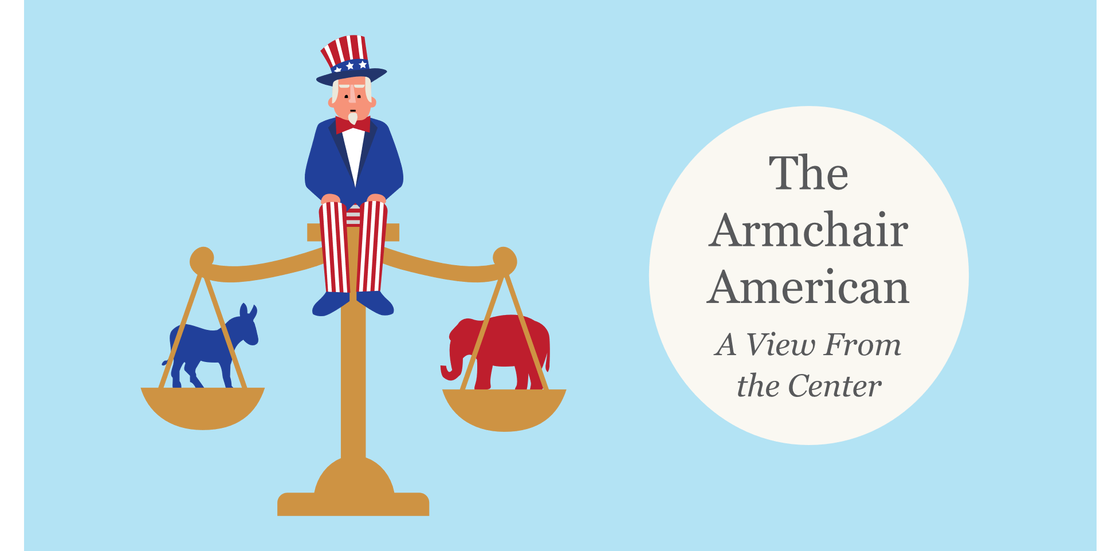



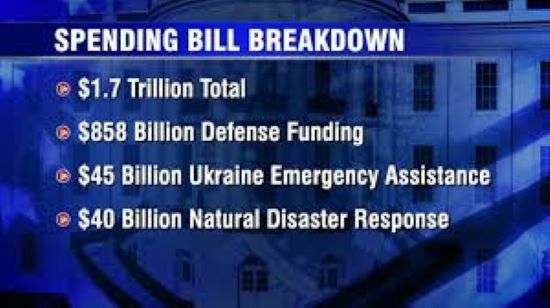

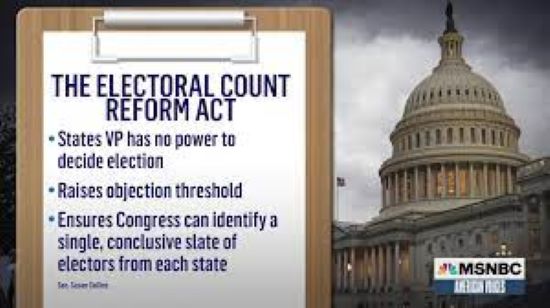
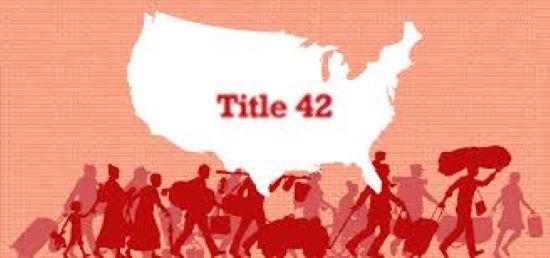


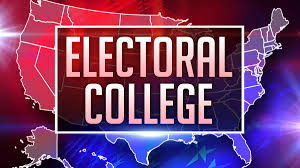

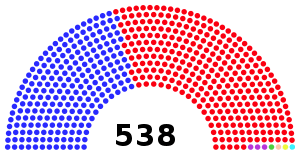
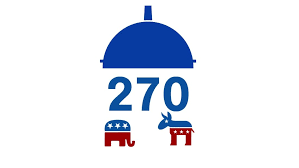
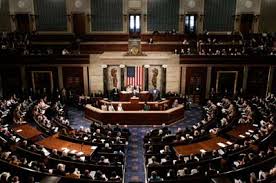
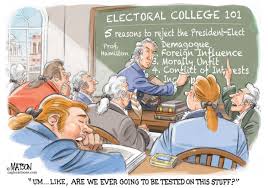
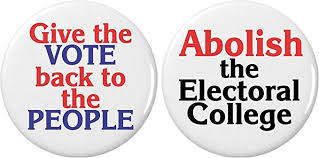
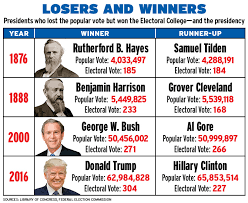

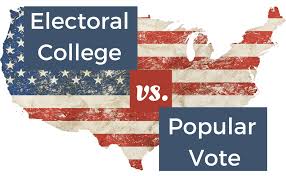

 RSS Feed
RSS Feed